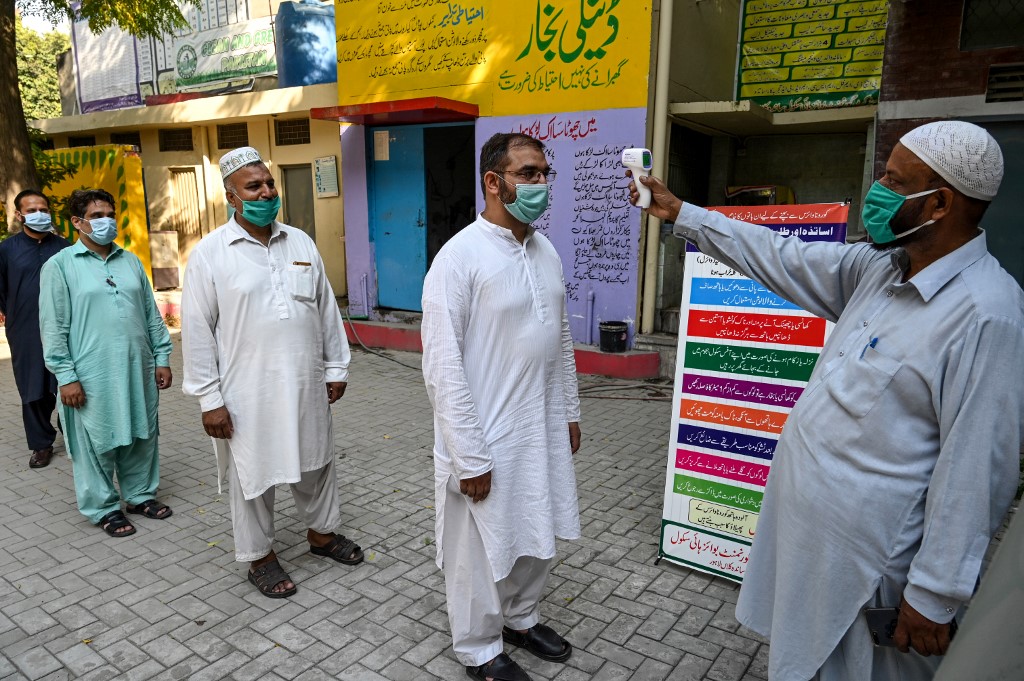ISLAMABAD: Rapid tests conducted by online health service Find My Doctor in Karachi showed a “very high and alarming” positivity rate among school staff, as educational institutions are set to reopen on Tuesday and can become a source of a second wave of the virus spread, health practitioners say.
Pakistan’s infection figures are increasing again after a steady decline between June and late August. Schools were closed in March when the government enforced a nationwide lockdown to contain the spread of coronavirus. Authorities started lifting restrictions in May and last month allowed almost all sectors, including tourism, to reopen. Schools, however, remained closed.

Teachers line up for temperature checking during a rehearsal at a school in Lahore on Sept. 12, 2020, as the Pakistani government announced the reopening of education institutions from Sept. 15, after nearly a six-month closure due to the coronavirus pandemic. (AFP)
“We have found up to 18 percent positivity rate in school staff through a rapid test, which shows we are heading toward a disaster by reopening educational institutions,” Saad Siddiqui, founder and chief executive officer Find My Doctor told Arab News.
The average positivity rate was 13 percent from 2,000 tests conducted at different schools in Karachi in the past two weeks, which is “very high and alarming,” Siddiqui said.
“Majority of the school staff we have tested are asymptomatic and this should be worrisome for the government,” he said, adding that they were planning to conduct 1,500 tests at schools next week.
The government has directed schools to follow health guidelines at their premises to ensure that students do not contract the virus. The prime minister’s special assistant on public health, Dr. Faisal Sultan, announced that schools and colleges will be screened for compliance every two weeks to keep a check on the virus spread.
According to Dr. Qaiser Sajjad, secretary-general Pakistan Medical Association, daily COVID-19 infections have started soaring again with changing weather, which could lead to a second infection wave if proper health guidelines are not followed.
“The government should make antibody tests for school staff compulsory to check the infection before the reopening,” Sajjad told Arab News, as he warned that school staff and students could become virus carriers.
“The government is taking a huge risk by reopening schools, but let’s see how it turns up in a couple of weeks,” he said.












